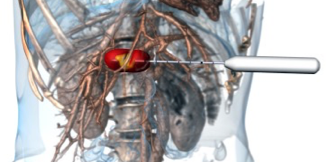The MIMESIS team recently joined the MEDITWIN consortium, whose main objective is to enable doctors to simulate the outcome of various treatment scenarios for a patient. MEDITWIN will enable the clinical validation, and possible industrialization, of these innovations so that these technologies can be deployed in a standardized way, and benefit as many people as possible. The best standards of care will be incorporated into virtualized experiences made accessible worldwide, setting a new benchmark for quality in healthcare and providing a decisive learning ground for progress in medical science. The benefits of digital twins will be assessed for medical teams, patients, and the healthcare system, notably in terms of improving the efficiency of care, quality of multidisciplinary decision-making, and effectiveness and safety of medical practices and interventions.
Jobs
We are recruiting several PhD candidates, post-doctoral fellows, engineers and interns on this project.
- PhD #1: Thermal ablation liver therapy is a minimally invasive procedure for the treatment of certain types of tumors in inoperable liver cancer patients.
The aim of this therapy is to destroy tumor cells via the local application of excessively high/low temperatures, which are delivered by percutaneously inserted needle probes. Various approaches for thermal ablation exist, all differing in terms of both their practical use and the results they achieve. Microwave ablation, radiofrequency ablation and cryoablation are the three most commonly used ablation approaches. However, to date, it is impossible to determine a priori either the optimal approach or the optimal delivery configuration.
The aim of the project is to accurately model the physical processes involved in different approaches to thermal ablation, as well as variations in the way they are delivered (energy levels, number of probes, probe placement) and the patient’s current cancer status, i.e. to develop a digital twin of liver thermal ablation. This will ultimately allow to predict the outcome of ablation therapy in diverse configurations, which could significantly enhance the planning and execution of the procedures, potentially improving treatment outcomes and reducing complications. This digital twin could also provide valuable insights into the behavior effects of ablation procedures in liver tumors, contributing to the broader understanding of liver cancer treatment.


